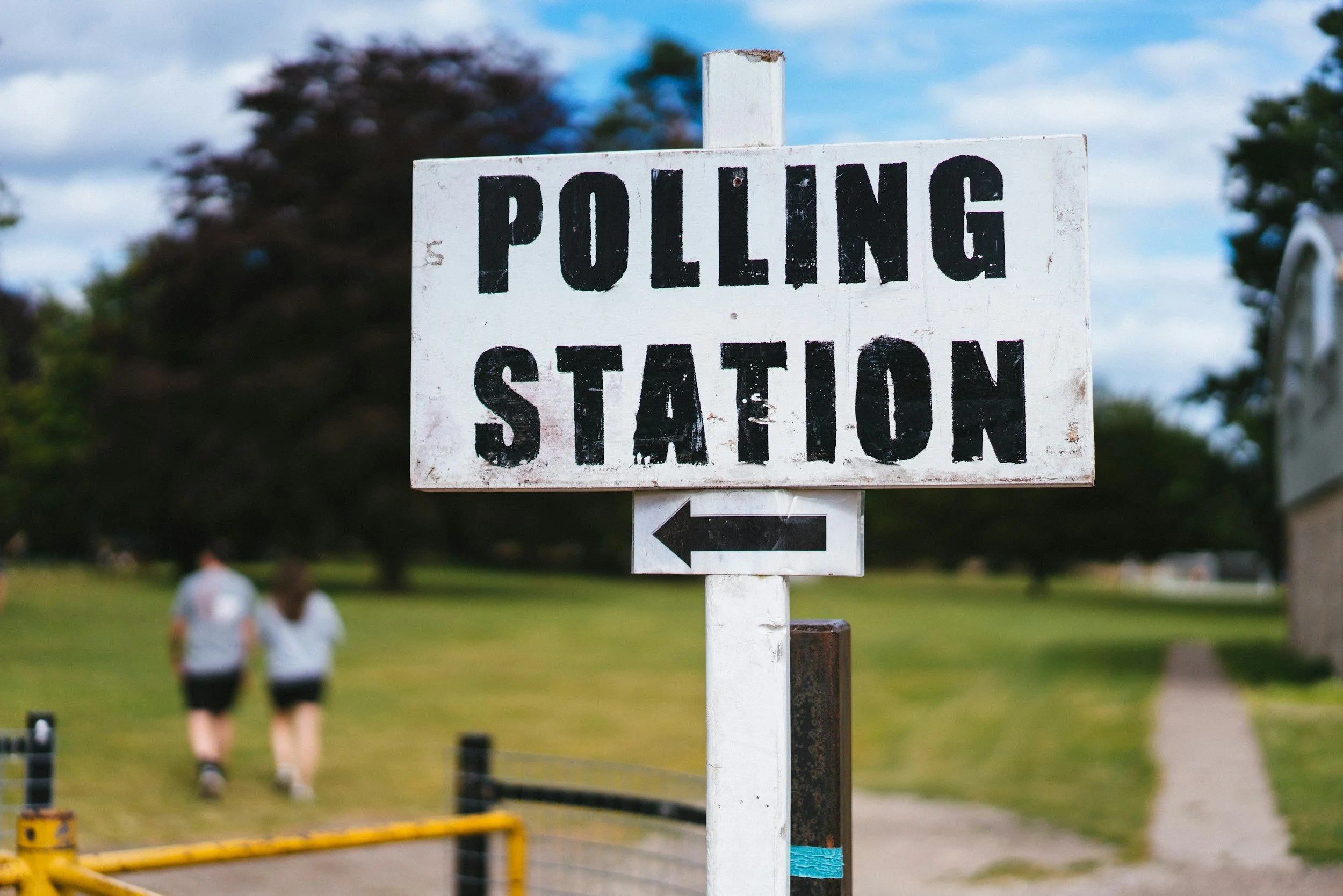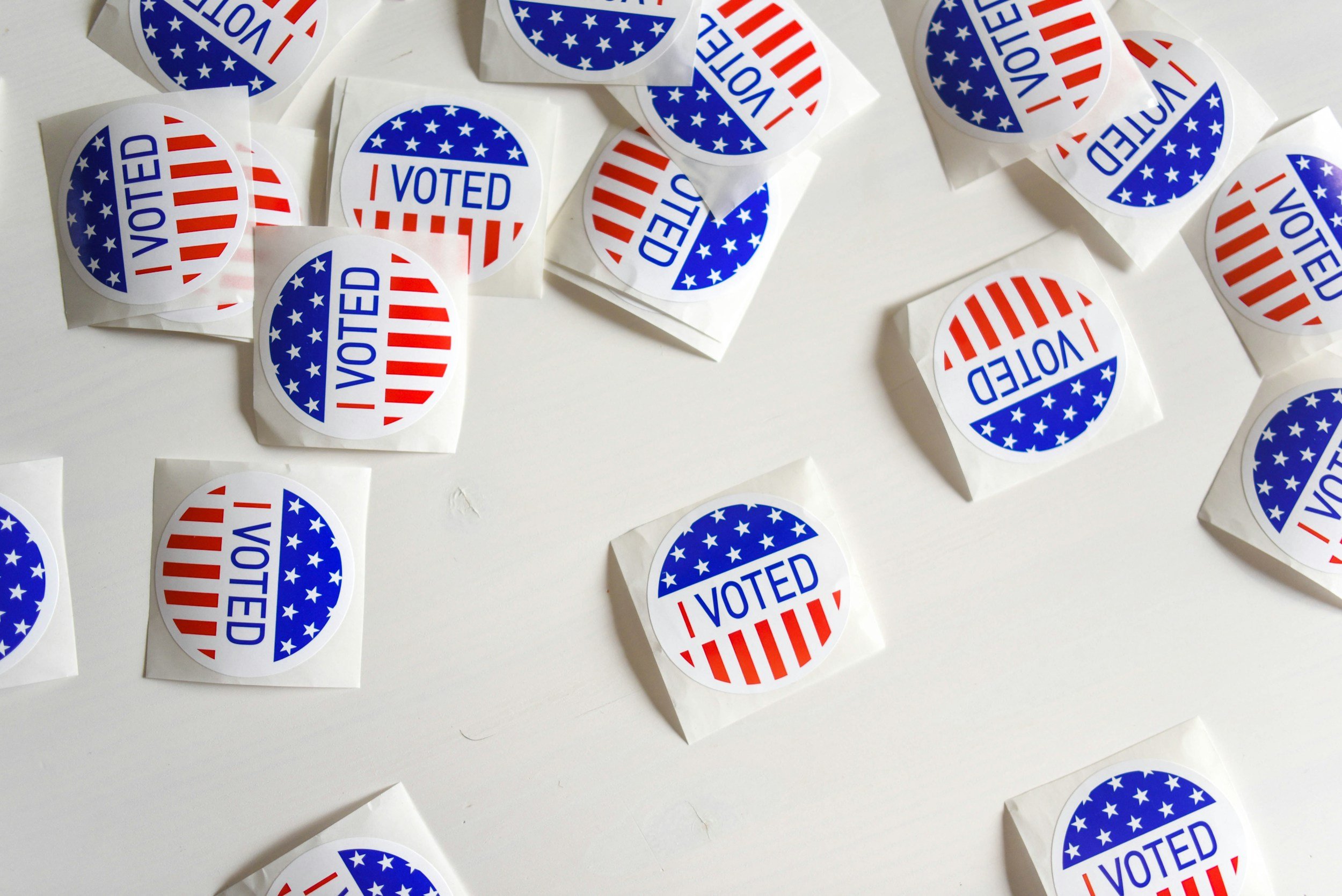
Can a voter-approved crime prevention district reduce crime?
Local officials face a stubborn challenge: public-safety gains can be fragile when budgets and political attention shift from year to year. Our new Urban Affairs Review study examines a practical governance tool that Texas communities have used to stabilize crime-control funding: Crime Control and Prevention Districts (CCPDs). The central takeaway is simple: cities that adopt CCPDs tend to see meaningful reductions in crime for several years.

When Cues Collide
In many city elections across the United States, voters face a similar challenge: they are asked to choose among candidates they know very little about. Ballots often list only names, not party labels, and local races receive little media attention. In these low-information settings, voters look for clues that can serve as “shortcuts,” or anything that will help them quickly decide which candidate to vote for.

Housing Vacancy, Structural Decline, and Voter Turnout in South Korea
Vacant homes are often treated as a technical concern for urban planners or housing officials. They are discussed in terms of land use, neighborhood maintenance, or redevelopment strategies. Yet in many places, empty homes are also a visible sign of deeper change. They tend to appear where people are leaving, where local services shrink, and where the future of a community feels uncertain. In South Korea, this pattern has become increasingly pronounced. While much public attention focuses on high housing prices and speculation in major cities, a different housing reality is unfolding elsewhere, marked by rising vacancy in smaller cities and rural districts.

New Books: Marked Men
In this episode, we’re speaking with Nyron Crawford, author of Marked Men: Black Politicians and the Racialization of Scandal, published in 2024 by NYU Press. Marked Men complicates the common perception that Black elected officials are forgiven for their transgressions because of the commitments and benefits made to constituents. Instead, Crawford demonstrates that “racialized suspicion” shapes the way Black voters rally to protect their embattled Black political representatives.

Crime, Policing, and Voter Turnout
Politicians love to talk about crime in their election campaigns. The conventional wisdom is that tough-on-crime solutions will bring out the vote. Chicago’s recent mayoral elections showed this perfectly, when several candidates promised to reduce crime through increased policing. Yet researchers disagree about how crime and policing are connected to voter turnout. We analyze data from Chicago’s last two mayoral elections to clarify.

Cities and Their Neighbors
Kenosha County, Wisconsin held the state's only contested race for District Attorney last year. The community's recent history of protest and violence resurfaced in the campaign as the Republican candidate had once represented a bail fund for Kyle Rittenhouse, a white teenager who shot and killed two local protesters. In the end, Republican Xavier Solis secured a narrow victory (51% - 49%) over Democrat Carli McNeil. However, this overall result obscures deep divisions within Kenosha County. Solis won just 43% in the city of Kenosha—the largest, most diverse city in the county and the site of the recent protests—he averaged 63% of the vote in the much smaller, whiter, and more rural communities in the rest of the county.

The Economic Background of City Councilmembers
Who are city councilmembers? One image might resemble a national politician — someone with strong partisan attachments, perhaps a lawyer by trade, who runs for office with ambitious policy goals. Alternatively, we might picture a local community member — someone well-known in their neighborhood, running for the part-time role not as a steppingstone to higher office, but to serve their community. Perhaps council is simply a natural next step in their career path. They might be elected because Republicans and Democrats alike trust their understanding of local issues and their commitment to schools and public safety.

What Date Works Best for You?
In 2015 the state of California ended more than 150 years of off-cycle local elections with the passage of SB 415, the California Voter Participation Rights Act (Anzia 2012; SB415). Aiming to increase turnout in local elections, the bill forced all California jurisdictions (like cities and school districts) to begin holding elections concurrently with statewide elections. SB 415 allows local governments to align their elections with either general or primary elections in even numbered years, resulting in variation across cities in the kind of concurrent election that they hold. This state level change in election law offers a unique opportunity to measure the effect of forced changes to election timing on voter turnout and voter priorities.

Political Lessons from American Cities: Seattle
This special series, “Political Lessons from American Cities,” is presented courtesy of Temple University Press. In this episode, you'll hear from Jennifer A. Heerwig (Stony Brook University) and Brian J. McCabe (Georgetown University) about their book, Democracy Vouchers and the Promise of Fairer Elections in Seattle.

Local Democracy in America
Judging by rates of turnout and contestation in mayoral races across the roughly 2,500 municipalities examined in this study, it seems safe to conclude that there is room for improvement when it comes to the health of local elections in the United States. While turnout varies considerably, across the more than 10,000 mayoral races we investigated, it averaged only 43 percent, and almost half of all races (48%) were unopposed. Though these statistics seem rather pessimistic, our study confirms prior research, which finds that the most powerful predictor of turnout in mayoral elections is when the election is held . We find that irrespective of size or location, municipalities with off-cycle elections have turnout rates about 25 percentage-points lower than municipalities whose mayoral elections are concurrent with presidential elections. The good news then, is that a very promising means by which to significantly increase turnout in local elections is not only quite simple, but also clearly within the province of policymakers: changing the election date.

Social ties, community events, and civic engagement in urban settings
Our research focuses on the role of social ties in the development of civic norms within urban communities. Previous political science research finds that socioeconomic resources and “strong” social connections to friends and family members increase political participation. However, most interactions in urban settings occur between “weak” social ties who include neighbors, colleagues, acquaintances, and even strangers. Despite their potential importance, little is known about the political consequences of informal social interactions with neighborhood-based ties in shared urban spaces. How do these casual interactions with weak social ties shape political participation?

UAR Reading List: Gender, Race, and Electoral Politics
Following this weekend’s announcement that President Biden would not seek election, and the all-but-certain nomination of Vice President Kamala Harris secured for the Democratic Party, we assembled a reading list from the UAR archive. These articles address the issues of gender, race, and electoral politics (and their intersections) through the lens of urban studies and draw on a diverse range of methods. As the presidential election approaches, we hope to continue building out this list and solicit new research to examine these themes.

Tribal Politics or Discerning Voters?
The substantial influence of partisanship on voting behavior at the national level is widely studied and agreed upon. But to what extent does partisanship influence voting behavior at the local level? While some research indicates local elections may be similar to national elections in terms of partisan influence, there are reasons to be skeptical. Local elections typically are nonpartisan; even if they are not, issues may not fall neatly along party lines.

Women’s Representation in Canadian Municipal Politics
The share of women in Canadian municipal politics is just thirty-one percent—far from parity. Yet it varies widely across municipalities. What explains why sixteen percent of councils have no women on them while another sixteen percent have achieved gender parity? Such differences matter because research shows that elected women tend to prioritize issues that are distinct from men, contributing to better representation of many social issues. And young women who see themselves reflected on their councils are more likely to consider running for office themselves someday.

Political Underrepresentation Among Public Benefits Recipients
In November 2020, all eyes were on Pennsylvania in the lead-up to the hotly-contested presidential election. Four years prior, Donald Trump had carried the state by under 45,000 votes, out of more than six million ballots cast. Given its pivotal position as a presidential swing state, campaigns and grassroots groups blanketed the state to register and then turn out people to vote. Turnout in that election broke modern records.
But one key group of eligible voters was underrepresented among the record-high electorate: people receiving means-tested public benefits. Studying voter registration and voting in a large county in Pennsylvania, we found that people enrolled in means-tested public benefits programs register to vote and vote much less often than non-recipients.

Towards a Measure of Local Legislative Professionalism
Local legislatures are not, on average, poorly resourced institutions that are staffed by citizen legislatures, nor are they professional bodies more akin to Congress. Instead, much like state legislatures, they tend to fall somewhere in the middle, with most municipalities taking on some characteristics of each type. In the end, we hope this measure will help scholars and practitioners of urban politics better understand how institutional structures, like professionalism affect outcomes.

Political Consequences of the Endangered Local Watchdog
The prolonged and ongoing struggle of city newspapers to stay afloat and maintain full newsrooms made us curious about potential fallout for local politics. Our new article in UAR leverages 20 years of data to examine the relationship between newspaper staffing cuts and measures of political competition and voter engagement in mayoral elections.

Arguing over Transportation Sales Taxes
Voter-approved local option sales tax (LOST) measures for transportation increasingly fill gaps between falling fuel tax revenues and growing transportation investment needs. There are concerns, however, over whether LOSTs are an equitable transportation finance mechanism. Equity is a critical concept in public policy and finance, and debates over resource distribution on fairness grounds are often contentious. Sales taxes are typically regressive—disproportionately burdening low-income residents—and disconnected from transportation system usage.

Right Cause, Wrong Method?
There is widespread agreement among educational stakeholders on the urgency of school improvement. Educational actors ranging from policymakers, educators, parents to non-profit organizations and corporations insist that the public school system has failed too many underprivileged children and improving struggling schools is a central challenge in public education.

Mayors, Accomplishments, and Advancement
It seems straightforward that political advancement would be based on politicians’ accomplishments in office. Voters should want to reward politicians who have demonstrated their competence in office. Apart from the effects of the economy and war on presidential campaigns, there has been little direct examination of whether, and if so how, specific performance in office is related to politicians’ career decisions. Part of the reason for this dearth of research is that voters are generally thought to have very little knowledge, beyond party identification and name recognition, about most politicians. This is particularly true for local offices which typically do not focus on divisive issues that draw intense media coverage and typically do not involve substantial campaign spending.